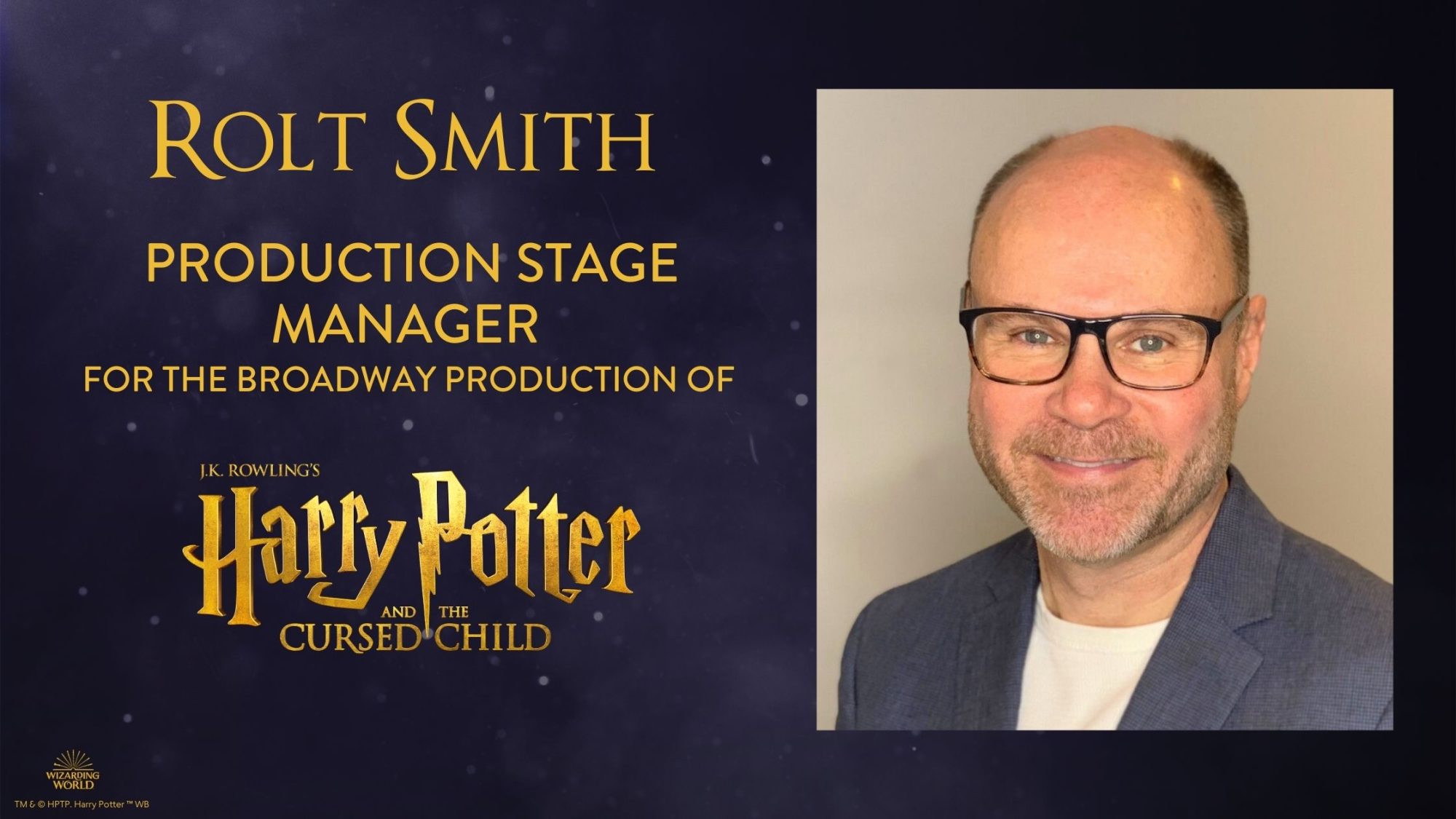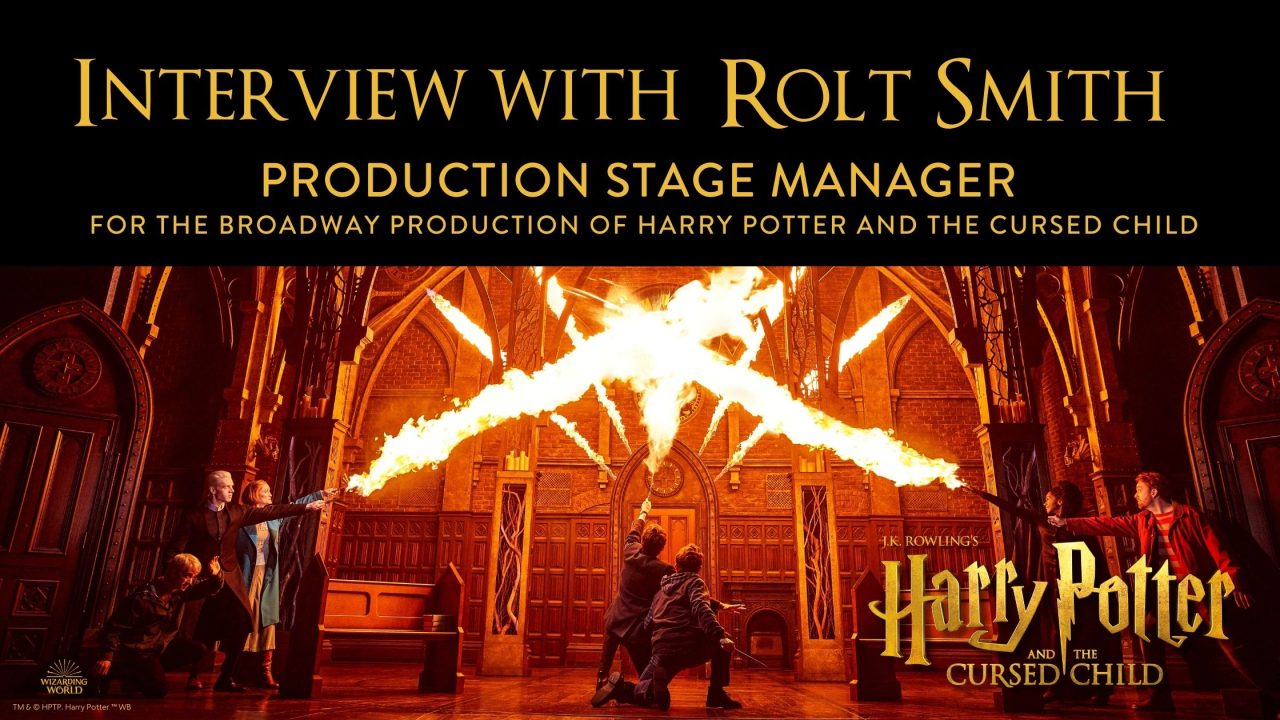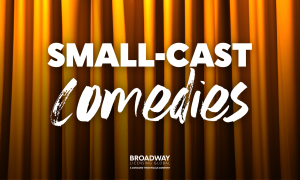In a world where the spotlight often shines brightest on actors and directors, there exists a cadre of behind-the-scenes professionals who are the true architects of the theatre’s magic. Today, we take you on a journey behind the curtain, illuminating the myriad roles that breathe life into theatre productions. Today, we delve into the world of stage management, a role often misunderstood yet undeniably pivotal in the theatre landscape.
The history of stage management is a story of evolution, tracing its roots back to the early days of theatre when productions unfolded in open-air amphitheaters. These ancient stage managers ensured meticulous coordination for seamless performances. As theatre evolved and moved indoors, the role expanded exponentially, becoming the linchpin holding a production together.
Today, a stage manager’s responsibilities are as diverse as they are vital. They oversee rehearsals, coordinate set changes, cue lighting, and meticulously place props. Stage managers are not mere organizers but unsung heroes ensuring flawless performances.
Few individuals embody the essence of a Broadway stage manager quite like Rolt Smith, Production Stage Manager for the Tony Award-winning Broadway production of Harry Potter and the Cursed Child. Smith’s journey to this esteemed position is a testament to his perseverance and passion for the theatre.
In the following interview, Rolt shares insights into the multifaceted role of being a Broadway production stage manager. He discusses his journey from being a student to working professionally and the task of overseeing the Broadway production of Harry Potter and the Cursed Child. With a career spanning two decades, Smith has earned a legendary reputation for his leadership ability, attention to detail, and composure under pressure. His journey serves as a testament to the immense dedication required to succeed in this challenging yet rewarding profession.
This interview was conducted by Zach Dulli, Director of Education and Community Initiatives at The Broadway Licensing Global. The following has been edited to length and clarity.
ZACH: How did you first discover theatre?
ROLT: Theatre has always been a part of my life. My parents were patrons of the arts; they liked to go to the theatre, and they would take me and my siblings along. For a time, we were living in the New York City suburbs, and while we didn’t come to New York all the time, it was something that was always available to us. It wasn’t until High School that I got into it seriously. I was never a team sports kind of kid. That just wasn’t in my wheelhouse. And although I didn’t realize it at the time, I was still craving that sort of team experience of working with other people to create something. And I think that’s what got me going.
ZACH: Do you remember the first Broadway show you saw?
ROLT: Yes. My first Broadway show was called The Magic Show by Stephen Schwartz. It was a birthday present. I got to invite a friend, we went into the city, had lunch and saw a matinee.
ZACH: That’s a great Birthday present. The Magic Show starred Doug Henning; if I remember correctly, it had a good run on Broadway.
ROLT: That’s correct; the musical starred Doug Henning and it did have a good run. I think it did well because of kids like me. We picked the show because of the magic in it, but the show also had music and dancing, so it was a great way to introduce kids to theatre.
ZACH: So far, we have established that you grew up going to the theatre and got into it seriously in high school. However, in my research on you, it looks like you didn’t go right into the theatre after you finished school. At first, you went in a very different direction.
ROLT: I did. I tried really hard not to pursue theatre, only because everyone was like, “Oh, it’s really hard,” “You’re not going to make it,” etc. So, I tried doing other things. I worked in a bank for many years, but even then, I still kind of dabbled in community theater. I eventually got to a point where working full-time and going to school part-time was taking forever. I knew I needed to get my college degree, but I also wanted to be done. Simultaneous to all that, I had been taking a theatre class as a way of fulfilling a fine art requirement for what, at the time, was going to be my business degree. I had read a lot of plays and did a lot of my own personal research on various shows, so when we had discussions in class, the other students would just kind of sit back and listen to the teacher, and I would talk about whatever play we had just read. One day, this teacher asked if I had ever thought about switching majors to Theatre. It was just what I needed someone to say to me.
Around that time, I found out that they were starting a new stage management concentration at the University of Rhode Island. I went, met with the chair of the department, who became my adviser, and just worked out a plan. I quit my job and went back to school full-time, studying theatre in the new stage management concentration. At the time, the concentration had only four students, including me. Several years ago, I went back to the school to do a class for the students enrolled in the stage management concentration program. My adviser was still there and still running the department. I chatted with some of the students, and there were about 25 in the program. I thought that it was really impressive it had grown so much.
ZACH: As we have been speaking, you’ve mentioned several people, specifically educators, who have helped guide you along your career journey. Can you tell us a little bit more about those people?
ROLT: I had a theatre teacher in high school in Connecticut who went on, later in his life, to be a reviewer for some publications in Connecticut. His name was David Rosenberg, and he unfortunately passed away a few years ago. David was very encouraging to me. I had another great teacher named Bob Beatty, and he was not someone who pushed anybody toward a career. He was just trying to give us an opportunity in terms of how to do theatre and what you can learn from that, applying theatre to all kinds of life lessons and skills that you can apply to any job. And I think that the important thing about theatre education is you don’t necessarily have to do it as a career. But it’s good what you learn in theatre in terms of how to work with other people, how to create something, and how to communicate. I think those are all skills you can apply to almost any job.
ZACH: I completely agree.
ROLT: Finally, when I was in college at the University of Rhode Island, I had two teachers, one of whom was a woman named Paula McGlasson, who is still there at the university. Part of her stage management training included a class where you learn how the skills and training you received in stage management can apply to any element of your life in terms of just how to keep yourself organized or on a schedule. And then, as I said, there was this one teacher who I had in this class at the extension campus who was the one who initially suggested that I think about switching my major. That was definitely a turning point for me because up until then, I hadn’t really allowed myself to think it was possible.
ZACH: After graduating, how did you get yourself a job working as a Stage Manager?
ROLT: At the time, there was a small theatre company called Theatre by the Sea. Through various sequences of events, I ended up becoming the theatre’s general manager, which again was not something I wanted to do, but it did enable me to incorporate some of my banking training with my own love of theatre. I was able to be successful at that job without ever really planning on it. We made it up as we went along, but we also learned a heck of a lot. After doing that for about five years, I was really missing being an integral part of actually making theatre. It was around this same time the theatre was in the process of expanding, sending out a small non-equity tour of The Wizard of Oz. I convinced them to hire me to be the stage manager for the tour production. And so, I did that. I didn’t really have any assistance on the show or a team of any sort. It was just me. But it was also a great training ground. It was after that experience that I finally came to New York. I was already in my early 30s, so I didn’t come to the city as a kid fresh out of college. I had a little experience of the world, and that is something I think is important. Everyone’s going to come and do their thing on their own in their own time. Had I come to New York sooner than that, I would not have been ready. I would not have managed that well. So, that timing just worked out well for me. And that’s the thing I try to tell young people is that you have to kind of do what’s going to work for you.
ZACH: Your first Broadway gig was as the assistant stage Manager on the original Broadway Production of the Cy Coleman musical The Life. What was your experience like on that show?
ROLT: Working on The Life was a really special experience. It was a show that, for a variety of reasons, had been in development for many years with the same people. I had not been a part of that process, but most of the cast and creative team had, so when they arrived at rehearsals, they were already a family. It was a really lovely group of people and a great way to sort of get an intro into Broadway Theater and how that works.
ZACH: Between working as an ASM on The Life and your current role as Production Stage Manager for Harry Potter and the Cursed Child, you worked on a variety of Broadway shows and national tours. How did you break into stage managing on Broadway?
ROLT: I got really lucky, and this is another thing I try to tell students as they’re learning: so much about our business is about luck and being in the right place at the right time. My very first job in New York City was for a new musical version of A Christmas Carol at Madison Square Garden. Alan Menken wrote the music; it was directed by Mike Ockrent and choreographed by Susan Stroman. I had just moved to New York City in the fall of 1994 as they were starting rehearsal. The show was massive, and I don’t think anyone really knew what they had on their hands. I heard through the grapevine that they were looking for a production assistant, and I thought, well, I don’t really know what that means or what I’m going to have to do, but it’s connecting me to stage management somehow, and I know that’s what I want to do. So, I went in for an interview, and I told them I just wanted to come learn and make connections, so I’ll work for free on this show. They looked at me like I was crazy, but they took me on as the production assistant.
ZACH: That’s smart.
ROLT: Not long after coming on board as a volunteer, I was told they needed another chaperone for the 15 or so kids they had in the show. And because the job involved working with kids, it actually paid $600 a week. So, I basically stage-managed the kids in terms of getting them to learn their lines, their tracks, and getting them to where they needed to be. Working in that role solidified my relationship with the PSM of that production. After that Christmas season was over and A Christmas Carol closed this same PSM was next going to be working on a small off-Broadway play. He asked me to assist him, and that’s how I really got into it. The PSM I’m speaking of is Steven Zweigbaum. Steve is a very long-term, kind of big-deal stage manager in the Broadway community. He became my mentor, and all the shows that I did for years after that were because of Steve. He was the PSM of pretty much every show I did up until The Wedding Singer. So that was really just about luck. Had Steve not been doing that little off-Broadway show, then I never would have made that connection in any further way. It’s important to remember you can’t feel down about yourself if you are not getting those breaks because so much of it is luck, and it doesn’t mean you’re not good at it.
ZACH: That’s a great story and a great lesson for all of us to remember.
ROLT: The other thing I try to instill in young people is this: no matter what the experience is, good, bad, or different, try to always leave the production on good terms. When the show ends, you need to have good connections to get the next job. Having people speak highly of you is important because so much of our industry is about networking.
ZACH: Now, let’s move on to Harry Potter and the Cursed Child. How did you come to work on this show?
ROLT: Harry Potter and the Cursed Child was already up and running in London, and the producers wanted to bring the show to Broadway. A New York production company was hired to manage the Broadway production, which includes, among other things, hiring the staff for the show. I had worked with this production company on a couple of other shows before; they called me and said, do you want to be considered for Harry Potter and the Cursed Child? I was working on Kinky Boots at the time. I really loved working on that show, and I was not looking to leave. I eventually got a phone call from London that they wanted to meet me. I met with their technical production supervisor, who was overseeing all Harry Potter and the Cursed Child companies worldwide. He and I chatted for a while; we talked about the show, and he told me what it was going to be like. It was a lovely meeting, but after it was over, I thought, well, that was that. I won’t hear anything back. Then I got a call from the production management team, saying they wanted me to meet with the show’s director. They also let it slip that the job was now between me and one other person. It was right around this point that I started to come around to the idea that something might be happening here. I met the director and the same technical director from my previous interview over Zoom. We had a nice conversation, but again, I just thought, you know, I don’t get these things. Then, the same local production manager called me back a few days later to say they wanted me for the job. I did not expect that, but that’s sort of how that all came about. It started with having worked with some people who knew me, liked me, and recommended me for the position.
ZACH: So you’ve been with this production since the very beginning of the Broadway run?
ROLT: Yes. They first sent me to London to spend a week with the team there, kind of learning as much as I could about the show before we started rehearsals in New York.
ZACH: What is a typical day like as PSM for Broadway’s Harry Potter and the Cursed Child?
ROLT: The day doesn’t start when I go to the theatre; the day starts when I wake up. For example, let’s say I wake up on a Saturday when we have two shows. If I were to wake up at eight, there would already be text on my phone from actors who are not feeling well or are having some issue that needs to be addressed. It’s basically like putting together what the lineup is going to be for the next performance. And we are lucky in that for many of our roles, we have three understudies. So, it’s also a question of determining who else is available, who’s not on vacation, who doesn’t have a day off for some reason, and who can cover a given role. It’s a lot about figuring out the logistics of how we’re going to do the show tonight or this afternoon. In addition, we have some kind of press event happening that needs some attention. There are always emails and texts that are piling up, and those need to be addressed. I try to deal with things in the immediate so that nothing gets missed. So that’s just what happens during the course of the day before I even get to the theatre.
When I arrive at the theatre, it then becomes about going through the routine of making sure everything is where it’s supposed to be in order for the performance to happen. After five years of working on Harry Potter and the Cursed Child, it’s a very structured and very orderly process. The preparations we go through to make sure the show is ready for performance; you have to be precise even as you’re checking things before, we actually get to perform the show.
When I was a student, the thing they taught us was that the stage manager is responsible for everything. Anything that goes wrong is the stage manager’s fault, and anything that goes right does not get the stage manager extra credit. However, what I’ve learned, particularly with Harry Potter, is that it’s impossible for one person to carry that. And so, you have to have a team of people that you rely on. There’s a whole team of stage managers that make all that happen. And often for me, I will go in, and there’s a whirlwind of activity, and I just get briefed on it. So, I know what’s happening and can offer an opinion if I happen to have one. With that said, my team of Stage Managers have all been a part of this show from the very beginning with me. So, they know the show in many cases better than I do. And so, as issues come up, I will say to them, all right, this is happening. What do you think of this or tell me what we should do? What do you think is the best way to handle this? The point here is just that it does take a team, and this is not just Harry Potter and the Cursed Child. It’s impossible for one person to do it all. It’s very much about the department of stage management as opposed to the stage manager,
ZACH: As the Production Stage Manager, you oversee the entire Stage Management Department. For our readers who might not understand the difference between the roles, could you explain the difference, if any, between being a Production Stage Manager (PSM), Stage Manager (SM), and Assistant Stage Manager (ASM)?
ROLT: Yes, a lot of that is just names, and it’s a way of kind of identifying the different positions. Someone has to be in charge, and so that’s going to be your production stage manager. But there are situations in which you are the production stage manager, but they don’t call you that. For example, when you work at Lincoln Center, they just don’t call people by that name, and it may just be the rule included in the Actor’s Equity rulebook. The equity contract only identifies a stage manager and an assistant stage manager. Those are the only two names they give to anybody. So, the title of Production Stage Manager tends to sort of indicate sort of a more overall supervisory position. The stage manager is technically what we would call someone on a Broadway contract. That’s a unique thing to Broadway: the way the contract is structured. The contract doesn’t have to work that way anywhere else, and in many cases, it doesn’t. What I would say for sort of helping educators understand the difference is that typically, when you’re in rehearsal and putting the show together, the PSM is the one who’s going to call the show, who’s going to sort of oversee everybody else. But their main job during the run of the show is to call it. Your first assistant stage manager is going to be supervising the deck. Whatever changes and things might be happening on stage, that person would be the one who would sort of coordinate with the PSM. So, for example, if you’re in tech and you’re in a pause, and you need to go back and restart the scene, the PSM will say to the first ASM, I want to pick up from this moment, and the ASM’s job is to get everyone who’s on the deck ready to take it from that particular place in the script. As PSM, I will be informing the ASM to communicate about what piece of scenery we want to have ready, what props need to be set up, where cast members need to go, what they need to be dressed in, etc. This is why we have a team of ASMs because the PSM frequently needs to communicate with many different departments. With the PSM on deck: Instead of the PSM doing the nitty-gritty of all that, the ASMs on deck are going to make sure that, for example, that glass is filled with the right amount of water and that those eyeglasses are back in their case. It’s all of that sort of intricate detail stuff that the team works together on to make sure it all happens seamlessly.
ZACH: Do you call the show every night?
ROLT: I don’t call it every night. The thing about my job now is that it has grown into much more of a supervisory position. So, as an example, when we were mounting the San Francisco company of the show, I went out there and acted as a supervisor. Same thing with the Toronto production. I kind of supervised the North American companies of Harry Potter and the Cursed Child. And what that meant was that I was away a lot from the New York company. In order to do that, I really needed to empower my team to make the show function well without me, which they did really well. So now we have a routine where we try to have everybody call the show at least twice a week. So, there are times even now when I will still call several shows in a row, and even sometimes when I have to call two shows on the same day. It’s hard, but the thing I have to remember is if the guy playing Harry Potter can do the show twice on the same day, so can I.
ZACH: Speaking of two-show days, how do you ensure that the cast and crew maintain their focus and energy on those long days?
ROLT: From the perspective of the Stage Management team, we don’t just do a rotation of calling the show; we also do a rotation of who runs the deck and what track each ASM is following for that performance. It takes five of us just to make this show happen: four people running various aspects of the deck and one person who’s calling the show. So, we mix it up, and part of my job when I’m not calling the show is doing the scheduling. It’s important to keep people moving and keep changing their perspectives of the show. It helps make everybody more well-rounded and an overall better member of the production team. If they have the experience of knowing multiple tracks. and knowing today, I’m working on stage right. But I hear that there’s this thing happening on stage left, and I know that they’re going to need to do XYZ things. So, how can I help make that happen? Whereas if you don’t know what happens on that track, you can’t really help solve the problem, whatever it might be.
ZACH: How do you handle coordinating the swings, understudies, and even new people when joining the cast?
ROLT: Our show is unique in that the actors are all signed to a one-year contract, and at the end of that year, we go into rehearsal for a new group of people. In a way, we kind of start all over again every year. Of course, we often get people who want to stay. So now it’s really more about filling in some holes. That has its own challenges in terms of how you rehearse those people, but because of the nature of what the show is, people need to have the time to just kind of know what to expect, especially from a safety perspective. Safety is a huge part of our job as stage managers, and that’s not something we get taught. I learned that on the job, and I think part of that is because the industry has changed so much in recent years. I would definitely say to today’s theatre educators that when training future stage managers, remember that safety is now a big part of the job. For this show, that’s why we have to rehearse so much before people can go in because they have to be confident and comfortable in what they’re doing. There are so many things they have to think about as a performer, and it’s not just acting, saying your lines, and hitting your marks. It’s also being aware of where you are in relation to other people and where you are in relation to the floor, which is about to open up. So, we ask a lot of the actors, and we have to be able to keep our eyes out for them when they’re out on stage. And that’s another part of what keeps us active; we have to help maintain everyone’s safety and look out to make sure that they’re in the right spot at the right time.
ZACH: I think that’s a really good point. I don’t know too many teachers who have really given that level of responsibility to their stage managers.
ROLT: It’s hard, especially in an educational environment where you’re dealing with students and safety. I realize that’s a very fine line to walk as an educator, and just from a liability standpoint, it can get tricky. However, I do think that it’s a challenge for a teacher to try to create an environment in which the students feel empowered and feel like they are being responsible for each other, and yet not putting them at risk of being held accountable or liable for something if it’s to go wrong.
ZACH: Related to that, how do you handle unforeseen circumstances happening during the show? What advice would you give to aspiring stage managers about how to handle that situation? How do you stay calm under pressure, and how do you solve those problems?
ROLT: Yeah. It’s tricky. It really is about staying calm and just thinking rationally. We handle this by having a whole plan. We call them our contingencies, and they are, for example, when X doesn’t go the way, it’s supposed to, we do Y. The contingencies are even part of our rehearsal process. Once we teach people the show and they’ve learned how everything works, we then shake it up and say, OK, so now you know how that works, here’s what you’re going to do when it doesn’t work the way it’s supposed to. For the stage managers, it’s really about planning ahead. Where are we most likely to have a problem and then have thought ahead of time about how to best fix that problem? I think that’s one of the key ideas that all stage managers need to learn. It may be something you never ever have to do, but just thinking through a potential problem in your head helps you better analyze situations in general. I think that’s a great exercise for people to go through, even if it is just an exercise that could be done in a classroom. Give your students a scenario where something goes wrong and brainstorm ideas on how they might solve the situation when this thing goes awry.
ZACH: Do you have any antidotes, great interactions, or fun behind-the-scenes stories about working on Harry Potter and the Cursed Child that you can share?
ROLT: I don’t know that I have any funny stories necessarily. The thing about a show that runs on Broadway this long is that so much about it is in the routine. There are routines that you will go through as part of the show, and there are things that will happen eight times a week, and so it’s not only what you see onstage but backstage as well. The backstage traffic becomes as integral as the on-stage choreography. For example, when you have to hand a certain prop to someone, you might have to do a specific backstage choreography that goes along with it. I think we’re lucky because there was already this Harry Potter “thing” in the world that has nothing to do with us. So, there are people who come in, who are fans, who are excited to enter into the Harry Potter world. Everyone has a great respect for the Harry Potter story, the illusions, the magic, and even just the history of the show. There are a lot of people who grew up on these books, and they know them really well. I know that we’re lucky to be a part of the world. You definitely appreciate the uniqueness of this theatre experience. I think that’s just the nature of the show, and because we do it every day, we sometimes forget how the audience perceives it. And while I don’t get that many opportunities anymore to see other shows, when I do, it’s often a surprise. It’s like, I forgot how good this is, how great that effect looks because we see it from backstage where we can see all the moving parts that help make it happen. But from the audience’s perspective, it’s completely different, and that’s a great thing and a really important thing to be able to do to remind us of how it is.
ZACH: That’s a great point and important to remember.
ROLT: This show’s creators were brilliant when they put this play together. They incorporated old-school theater artistry and magic into making these effects that are quite spectacular. This is not something you are going to see at the movies. So, even if you’re not a Harry Potter fan, if you’re a theatre fan, I think you will enjoy it because it is so theatrical, and there is so much about it that is truly magical. I talk about how great the show is, and I’m not patting myself on the back at all because I didn’t create it. I’m just proud to be a part of it and grateful that I get to do it. The people who put Harry Potter and the Cursed Child together initially and help us to maintain it are brilliant in their vision. They taught us how it’s done, and now it’s our job to maintain it and keep it looking good.
I also have to say, and I think this is a valid point for educators to know as well. In the old days, the stage manager was sort of responsible for maintaining the complete artistic integrity of the show. This means the Stage Manager had to be a bit of a director as well. That’s changing in the current world. Certainly, on Harry Potter and the Cursed Child, they didn’t ask that of me. There is a whole other team of directors, usually called associate directors, who work on the team. We have a resident director who is with us all the time, and he sees the show at least four or five times a week. The resident director gives notes to the cast regularly. I will often get emails from him with notes to the cast because he likes me to know what he’s telling them because it could impact something that we’re doing. My point is there’s someone with you, a director’s eyes watching from the front, at least five or six times a week, and then, the actors will get notes probably three or four times a week. There is also a movement captain who is our equivalent of a dance captain, and she is at the show every day because she’s also an understudy. So, she’s also noting the show at least twice a week. And as our sort of hands-on person when, for example, before the show, we have to review a sequence because an understudy is going in, she’ll be there with us, helping to coordinate that and make that happen. So, there’s a whole other team of artistic eyes that are on the show all the time. I’m finding that happening more and more on shows, not just Harry Potter. These are newer jobs in the theatre, and its students should be aware that there are these positions out there now.
ZACH: That’s important for students and teachers to know. Last question: what advice would you give to aspiring Broadway stage managers?
ROLT: As I said before, always leave a show on good terms regardless of whether you leave before it closes or when it’s closed. Whatever the circumstances are, work really hard to try to make sure that people think fondly of you when they think back on the show because that will serve you well in the future. I would also just work, particularly when you’re young and just starting out. Work as much as you can. I am a big proponent of more actual on-the-job training. As you get older and you do more and more, you can start to become a little pickier about what you’re interested in doing or who appeals to you in terms of who you want to work with. But in the initial stages, say yes to everything. The only way to learn this job is to do it.
—
ABOUT ROLT SMITH

Smith comes to Harry Potter and the Cursed Child with over 20 years of professional experience. A few of his recent credits include the Broadway companies Kinky Boots, Fish in the Dark, Bullets Over Broadway, and The Nance. He has worked for City Center’s Encores! Series (On the Town, Stairway to Paradise, and Face the Music), at Lincoln Center Theater (South Pacific, Women on the Verge of a Nervous Breakdown and Happiness) and for Manhattan Concert Productions’ one-night-only performance of Crazy for You at David Geffen Hall. He traveled the country with the First National tour of The Producers (including the Los Angeles run at the Pantages Theatre) and worked eight seasons of the musical version of A Christmas Carol at Madison Square Garden as well as at Carnegie Hall for Leonard Bernstein’s Mass with the Baltimore Symphony Orchestra.






